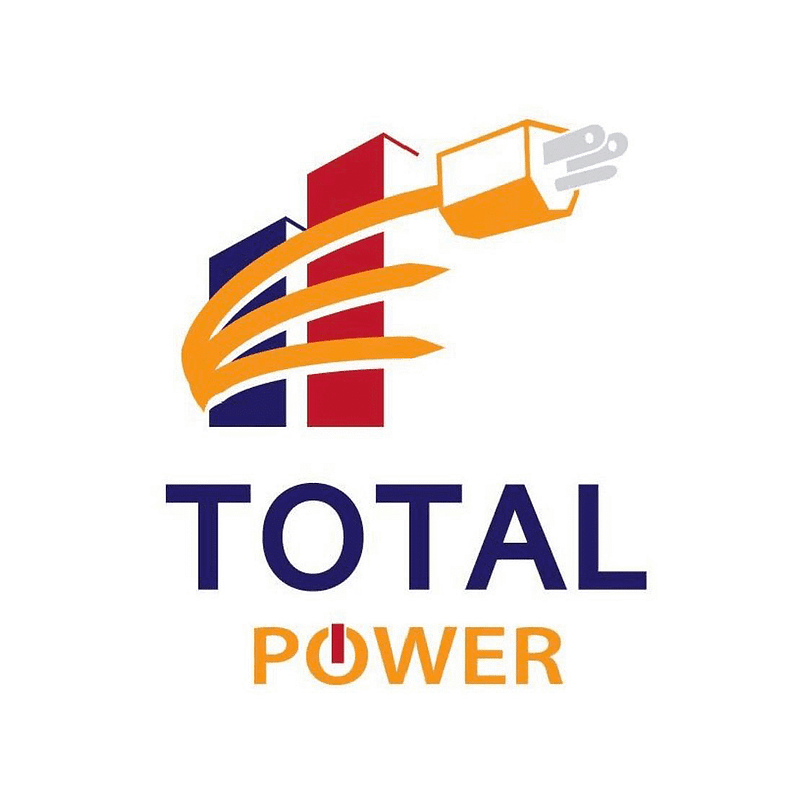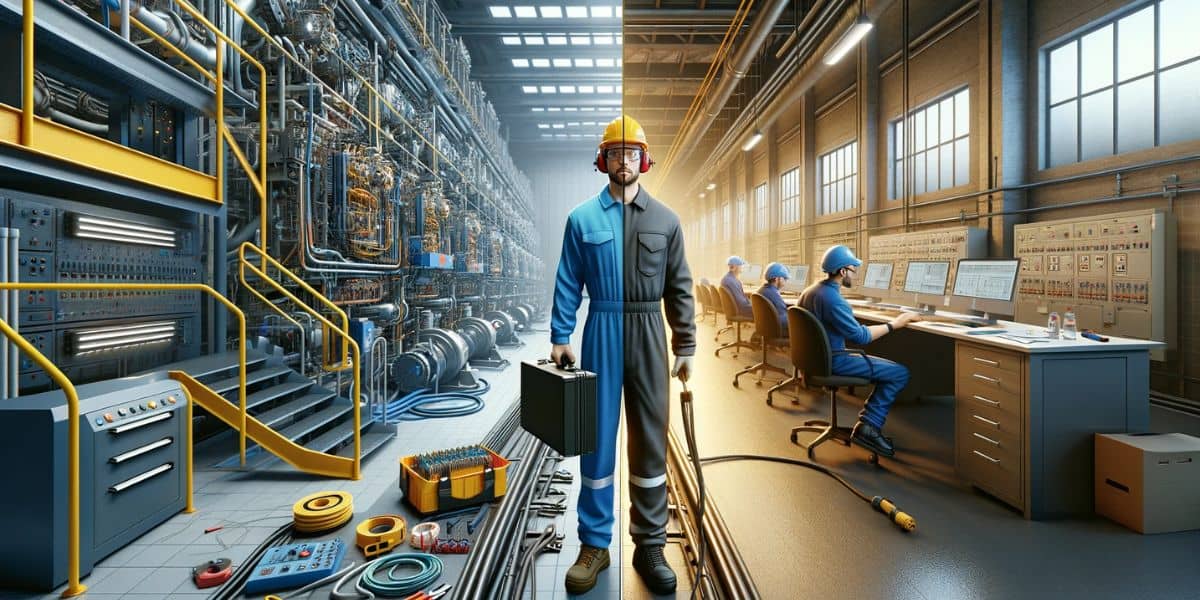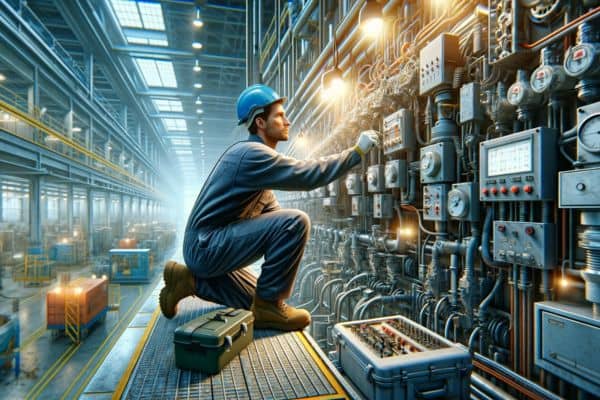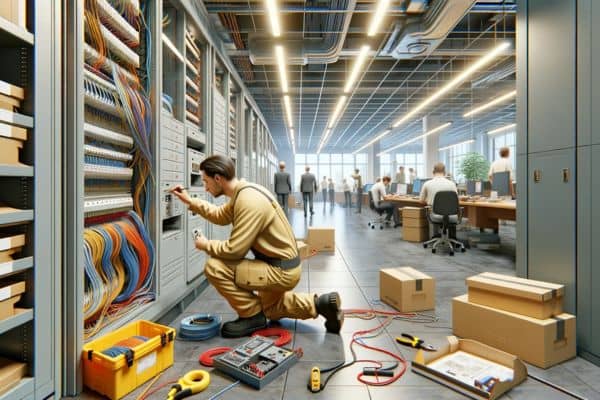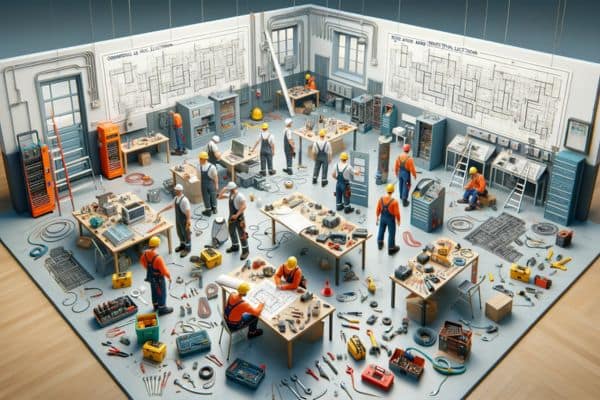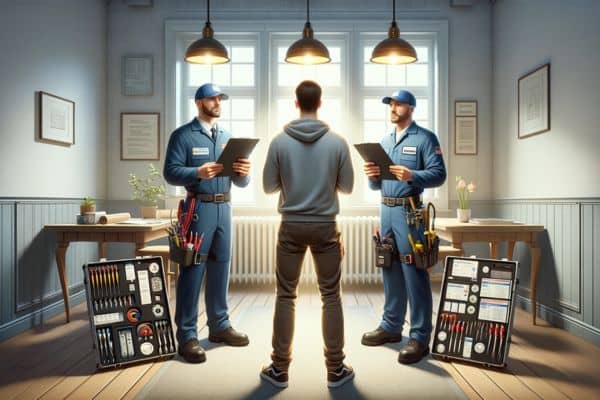Industrial vs Commercial Electrician: What are the Key Differences Between
Written by Total Power Energy Team
Published:
Electricians play a pivotal role in our daily lives, ensuring the seamless operation of electrical systems in various settings.
Among these skilled professionals, industrial electricians and commercial electricians stand out as distinct specialities.
Though they share a foundational skill set, the nuances of their responsibilities, environments, and expertise set them apart.
This blog delves into the key differences between industrial vs commercial electrician roles, illuminating their unique contributions to our modern world.
The Difference Between Industrial and Commercial Contractors
Commercial and Industrial electricians are often thought of in the same breath, yet they serve in distinctly different arenas.
An industrial electrician primarily works in factories, manufacturing plants, and other industrial facilities.
Their job demands them to handle complex, high-powered machinery and systems.
In contrast, a commercial electrician operates mainly in commercial buildings like offices, retail stores, and restaurants.
Their tasks, though varied, generally involve installing, maintaining, and repairing standard electrical systems that power lighting, heating, and air conditioning.
What Industrial Electricians Do
Industrial electricians are vital in maintaining and repairing electrical equipment in Industrial Workplaces.
Their work includes installing, maintaining, and repairing machinery, motors, and other heavy electrical devices.
These electricians are often confronted with high-voltage systems and industrial control circuits, demanding a specialized skill set to navigate these complex environments safely.
What Commercial Electricians Do
On the other hand, commercial electricians focus on the electrical needs of commercial buildings and establishments.
Their responsibilities include wiring, installing electrical components, and ensuring these systems meet legal standards and codes.
Commercial electrical contractors work in various settings, from small retail stores to large office complexes, providing various electrical services to cater to commercial or industrial needs.
Key Differences in Work Environment and Job Responsibilities

Work Environment
The work environment is a significant differentiator. Industrial electricians work in industrial settings, often dealing with extreme conditions and hazardous materials.
They are frequently required to operate in challenging and sometimes dangerous environments.
Conversely, commercial contractors typically work in more controlled and predictable settings, such as apartment buildings and public spaces.
Job Responsibilities
Regarding job responsibilities, industrial electricians are often tasked with managing and maintaining complex electrical systems and machinery.
They need a deep understanding of automation and control systems.
While also skilled, commercial electricians generally handle less complex tasks, focusing on installing, maintaining, and repairing standard electrical systems within commercial spaces.
Skill of Industrial and Commercial electrical contractors

Commercial Electrician's Skill Set
- Broad Electrical Knowledge: Essential for handling various electrical tasks in commercial settings.
- Code Compliance: Ensuring all electrical work meets the necessary codes and standards.
- Problem-Solving and Troubleshooting: Essential for quickly resolving electrical issues in commercial buildings.
- Communication and Teamwork: Vital for effectively collaborating with other professionals and clients.
- Adaptability: Being able to adjust to different tasks and environments.
Industrial Electrician's Skill Set
- Specialised Expertise: In-depth knowledge of industrial machinery and electrical systems.
- Troubleshooting Complex Systems: Skill in identifying and fixing issues in sophisticated industrial setups.
- Understanding of Automation: Knowledge of automated systems commonly used in industrial settings.
- Safety Focus: Prioritizing safety due to the high-risk nature of the work.
- Strong Analytical Skills: Essential for understanding complex industrial Power systems.
Educational and Licensing Requirements

Commercial Electricians Educational
Commercial Electrical contractors typically undergo vocational training and apprenticeships.
They must have a robust understanding of electrical theory and building codes.
Commercial Electricians Licensing
Licensing for commercial electricians varies by region but generally involves passing an exam that tests their knowledge of electrical theory, local electrical codes, and general building codes.
Industrial Electricians Educational
Industrial electricians often require more specialized education, sometimes including additional certifications or training in industrial electric applications.
Industrial Electricians Licensing
Like commercial, industrial electricians must be licensed, with the licensing process placing a heavier emphasis on industrial electric systems.
Salary and Career Prospects

Salary
The salary of an industrial electrician can vary based on experience, location, and industry. Still, it is generally higher than a commercial electrician’s salary due to the required specialized skills.
Career Prospects
Both fields offer robust career prospects. Industrial electricians may find opportunities in various industries, whereas commercial electricians have a broad market, including commercial and residential sectors.
Here are Some Commercial and Industrial Electricians' Similarities
- Both must adhere to safety standards and electrical codes.
- Continual learning is essential to stay updated with evolving technologies.
- Both require a foundational knowledge of electrical theory and practices.
- Both electricians need to be skilled in reading and interpreting electrical blueprints and diagrams.
- Effective problem-solving skills are crucial in both fields to efficiently address and resolve electrical issues.
How to Choosing the Right Electrician
When selecting an electrician, consider:
- The specific requirements of your project: Industrial and commercial electrician needs can differ greatly.
- The electrician’s experience and expertise in the relevant field.
- Licensing and certifications: Ensure they are qualified and legally compliant.
Future Trends in Commercial and Industrial Electrical Systems
The electrical industry is continuously evolving, with technological advancements shaping the future of both commercial and industrial Power systems.
This includes integrating smart technology, increasing focus on renewable energy sources, and incorporating automation in industrial settings.
Staying abreast of these trends is vital for electricians in both fields.
Conclusion
Understanding the key differences between industrial and commercial electricians is crucial for anyone seeking electrical services.
Each type of electrician brings unique skills and expertise tailored to specific environments and electrical systems.
Recognizing these differences ensures that the right professional is chosen for the job, guaranteeing efficient, safe, and compliant electrical work.
Frequently Asked Questions
What’s the difference between an industrial electrician and a commercial electrician?
The main difference lies in their work environments and the complexity of the systems they handle.
Industrial electricians work in industrial settings with complex machinery and systems, while Business electricians operate in commercial spaces like offices and stores, dealing with standard Power systems.
Can a commercial electrician work on industrial projects?
While a commercial electrician has a broad skill set, industrial projects typically require an industrial electrician’s specialised skills and training.
However, some commercial electricians may have the necessary experience to work on less complex industrial tasks.
What kind of training is required to become an industrial electrician?
To become an industrial electrician, one usually needs specialised vocational training, an apprenticeship, and sometimes additional certifications focusing on industrial electric applications.
Are the salary prospects better for industrial or commercial electricians?
Industrial electricians may earn higher salaries due to the specialised nature of their work and the complexities of industrial Power distribution systems.
How important is licensing for industrial and commercial electricians?
Licensing is crucial for both commercial and industrial electricians. It ensures that the electrician has met the required knowledge and safety standards, which are crucial for their respective fields.
Total Power energy content Team
Total Power Energy content team provide valuable tips and guidance on electrical information.
Our writers are experienced in the electrical field and produce high-quality content such as electrical safety, installation, repair, etc.
Our goal? To help you work safely and smartly. Our advice is easy to follow whether you’re at home or on the job. Stay safe and confident with our help!
